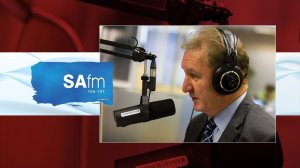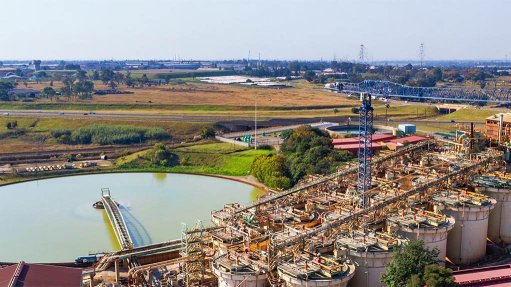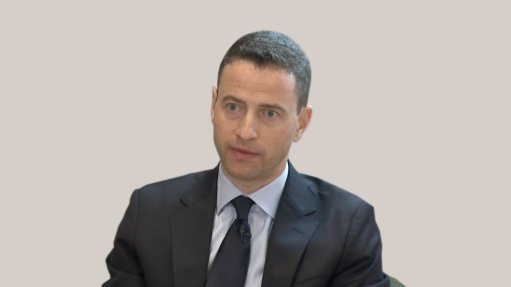On-The-Air (25/08/2023)
Every Friday, SAfm’s radio anchor Sakina Kamwendo speaks to Martin Creamer, publishing editor of Engineering News & Mining Weekly. Reported here is this Friday’s At the Coalface transcript:
Kamwendo: A million trees are being planted by a South African coal mining company to improve the environment.
Creamer: This is a fantastic gesture by Thungela. They are planting seeds, they have already hatched seedlings in a nursery. They want to plant a million trees and the reason is twofold. The primary reason is to purify the water that they pollute. So, these trees will actually suck up the polluted water and the tree itself will fix the water, which is a fantastic thing. At the same time, of course, it is going to absorb a lot of carbon.
It is in an era where people are calling on the world to absorb carbon. We know that a lot of trees are being planted around the world for this very reason, because of climate change and the need to absorb the carbon in the atmosphere. At the same time, they are also fixing up a situation where they poisoned a lot of fish. They now hatching new fish and they are going to put them in that area and purify the water that us coming out of their mine. So these are great environmental gestures, by Thungela, which is listed in Johannesburg and London.
Kamwendo: Sixty megawatts of clean electricity are on the way from a mining company that recovers gold from mine dumps.
Creamer: As you know, we have got these dumps around Joburg, which we are so familiar with. We know that there is a lot of gold in there, but to get the gold out, you need a lot of energy. We know that there are constraints with energy at the moment, because of Eskom. So what DRDGold is going to do, which is listed in Johannesburg and New York, they are going to set up their own energy situations using solar power and a lot of storage.
They are going to need a lot of electricity storage capacity, particularly out at Ergo on the East Rand. They will start up with self-generating 20 megawatts of electricity and then move with another 40 megawatts to 60 megawatts. This is a business case. All those who is generating their own energy find that it is a very profitable thing to do. It is just a question of getting the systems up and getting into the grid and arranging everything with Eskom.
I don't think there is one company in South Africa at the moment that is not planning to generate its own electricity, because of the solar power potential here. Also, they are finding a lot of wind power and they can do it at a much lower cost than they pay for coal-fired power from Eskom. So again, it is a green route, which the world is calling for.
Kamwendo: A far-reaching new approach is being shown as South Africans go about fixing our broken rail network.
Creamer: Many of the mining companies that are in discussion with Transnet and in discussion with the government now are saying that they gave got to go beyond just fixing the rail. Obviously, that is a thing that you have got to do, but they say to us, imagine swimming lanes, and you have got three swimming lanes, the one is to fix the rail that has been damaged.
The second is to make sure you have got the locomotives on it, but the third lane has got to be to take this to a much higher level to a best-of-breed level, because South Africa has fallen so far behind and we have got to reach world competitiveness. They want everything to be advancing at the same time. It is no good fixing one thing without thinking of the other. Many years ago, they started saying we are falling behind to Australia badly when it comes to logistics for coal mining and for all sorts of other ore that is carried.
We know we have had a terrible time with all the trucks that have replaced carrying ore on rail. Now, they don't even have enough money to put the ore into trucks, in most instances. So South Africa simply has to go back to rail. They have got to fix that rail, they have got to get the locomotives there, and at the same time, they want to be able to go for best-of-breed and get to a situation where we are competitive with the rest of the world, because we have fallen so far behind it, we should not be behind.
Kamwendo: Thanks very much. Martin Creamer is publishing editor of Engineering News & Mining Weekly.
Article Enquiry
Email Article
Save Article
Feedback
To advertise email advertising@creamermedia.co.za or click here
Press Office
Announcements
What's On
Subscribe to improve your user experience...
Option 1 (equivalent of R125 a month):
Receive a weekly copy of Creamer Media's Engineering News & Mining Weekly magazine
(print copy for those in South Africa and e-magazine for those outside of South Africa)
Receive daily email newsletters
Access to full search results
Access archive of magazine back copies
Access to Projects in Progress
Access to ONE Research Report of your choice in PDF format
Option 2 (equivalent of R375 a month):
All benefits from Option 1
PLUS
Access to Creamer Media's Research Channel Africa for ALL Research Reports, in PDF format, on various industrial and mining sectors
including Electricity; Water; Energy Transition; Hydrogen; Roads, Rail and Ports; Coal; Gold; Platinum; Battery Metals; etc.
Already a subscriber?
Forgotten your password?
Receive weekly copy of Creamer Media's Engineering News & Mining Weekly magazine (print copy for those in South Africa and e-magazine for those outside of South Africa)
➕
Recieve daily email newsletters
➕
Access to full search results
➕
Access archive of magazine back copies
➕
Access to Projects in Progress
➕
Access to ONE Research Report of your choice in PDF format
RESEARCH CHANNEL AFRICA
R4500 (equivalent of R375 a month)
SUBSCRIBEAll benefits from Option 1
➕
Access to Creamer Media's Research Channel Africa for ALL Research Reports on various industrial and mining sectors, in PDF format, including on:
Electricity
➕
Water
➕
Energy Transition
➕
Hydrogen
➕
Roads, Rail and Ports
➕
Coal
➕
Gold
➕
Platinum
➕
Battery Metals
➕
etc.
Receive all benefits from Option 1 or Option 2 delivered to numerous people at your company
➕
Multiple User names and Passwords for simultaneous log-ins
➕
Intranet integration access to all in your organisation


















